QuestionThank You for all the help you give to so many people, even though many of us make our own problems by not understanding dogs.
Our GSD is 8yrs old. 2 days ago he had trouble first thing in the morning. He needed to drag his back legs on the way out to the kennel. He was knuckling a bit, and he seems to be in pain. In hindsight, I feel he has had pain for some time. Also he seems unsteady sometimes. We took him to our Vet. Whom we think is one of the best in this or any area. Dr Meadows said that he thinks he has Intervertabral Disc Disease. He (Dr Meadows) isn't the type to care what the person wants, he is only concerned about the animal. And he doesn't think very highly of people who want to put down an animal with out really putting an effort and money into helping the animal.
He doesn't hold much hope for our dog. He said even if we went out of the area and spent 5000. on a mri and an operation, Harley has alot of arthritis, and his spine is in very bad shape. We have steroids for him and we go back in month. I don't question his diagnosis, he kept Harley a full day to do alot of tests and to observe him. We also have an English bulldog with a heart problem, who he sent to the state college hospital and who takes heart meds every day. But she was just a puppy and the thousands we invested into it can be managed when you think of it per year of her life. The breeder also gave us back our money, though we wouldn't give up the bulldog, he said put it towards her bills. Harley though is almost 9 yrs old. What I don't know is, how will this progress? The vet wasn't clear on that or maybe I just didn't hear it. Can I leave the decision on ending his life to the vet? And do you know how long the dog has? About? The vet wouldn't say, I did ask several times. Harley is the most well behaved, smart, and loving dog. My husband and I cant stop crying, this is so hard. Can you give us any advise please.
AnswerYou are to be commended for caring so much for your dogs and for keeping your little bulldog and caring for him after discovering his condition. You cared enough to get Harley to the Vet when you discovered the problem. It makes it that much harder to find that your other, long time german shepherd member of the family has become so ill. My heart truly goes out to you, your husband and Harley at this time.
It sounds like your vet did everything he could to provide you with a sound diagnosis. Although I do not doubt your vet's diagnosis, and attempt to sway you from thinking about costly surgery, he did not give you straight answers about his prognosis. You may want to get a second opinion due to the fact that so much is at stake here. Don't be afraid to contact professionals or specialists to get the answers you need.
I recommend before you make any decisions that you become very educated on this disease. Including possible outcomes for Harley and the cost to treat him. It will help you to make an informed decision. The second thing I recommend is that you do not make any hasty decisions. Take your time, and take the time to get over your initial shock and be sure of your decision, for all you know you may still have plenty of time with Harley.
I have collected and attached a number of websites mostly written by universities or veterinarians to assist you and one from surgeons who perform surgery on this disease to help you to learn more.
As for how this will progress or how long your dog has
I really don't know how long your boy has because the outcome can vary with each situation. But here is what I have found.
Intervertabral Disc Disease is a very serious disease, which may result in permanent hindlimb paralysis and incontinence, if left untreated.
Without surgery, confinement may help initially in some cases, surgery is often required to relieve pressure on the spinal cord. The outcome will depend on a number of factors (including the severity of clinical signs, whether pain perception is still present, and length of time between the onset of clinical signs and surgery, to name a few). While surgery may restore the animal to normal function, it is not always successful. With type II IVDD, clinical signs usually develop slowly over months. Again there may be pain, and weakness or paralysis in any or all limbs.
For More information about Intervertabral Disc Disease
http://www.gcvs.com/surgery/interver.htm http://www.acvs.org/AnimalOwners/HealthConditions/SmallAnimalTopics/IntervertebralDiscDisease/
http://www.petplace.com/dogs/intervertebral-disc-disease-thoracolumbar-area-in-d...
http://cal.vet.upenn.edu/saortho/chapter_62/62mast.htm
http://www.vin.com/proceedings/Proceedings.plx?CID=WSAVA2005&PID=11224&O=Generic
http://www.vet.purdue.edu/cpr/IVDD.html
http://www.upei.ca/~cidd/Diseases/musculoskeletal/intervertebraldiskdisease.htm
My prayers are with you and Harley at this time. I want you to know that you and Harley are helping others by having your question posted here at all experts. As a result of your inquiry I have also added this disease to my the list of Common German Shepherd Ailments on the Help and Info Sections of my website at http://www.gallantshepherds.com/help.htm
ALSO TO ASSIST WITH EVERY DAY HEALTH QUESTIONS BELOW IS THE MERCK VETRINARY MANUAL It will be a valuble help to you!
http://www.merckveterinarymanual.com/mvm/index.jsp?cfile=htm/bc/100702.htm
Sincerely
Gallant German Shepherds
http://www.gallantshepherds.com

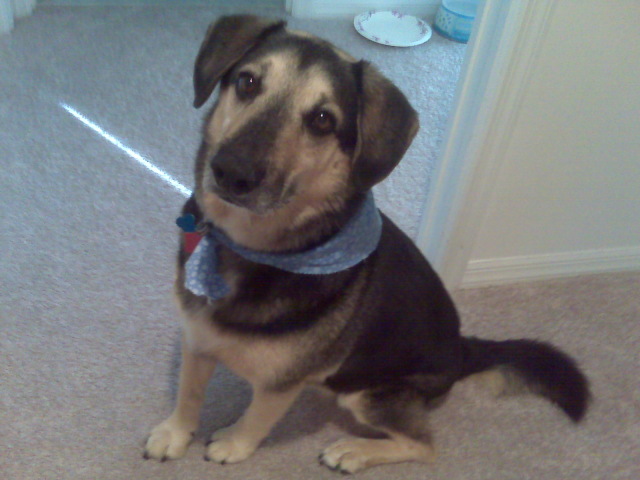 German Shepherd Mix Food
Question
Harley
Hello,
I have a 6 1/2 year old German S
German Shepherd Mix Food
Question
Harley
Hello,
I have a 6 1/2 year old German S
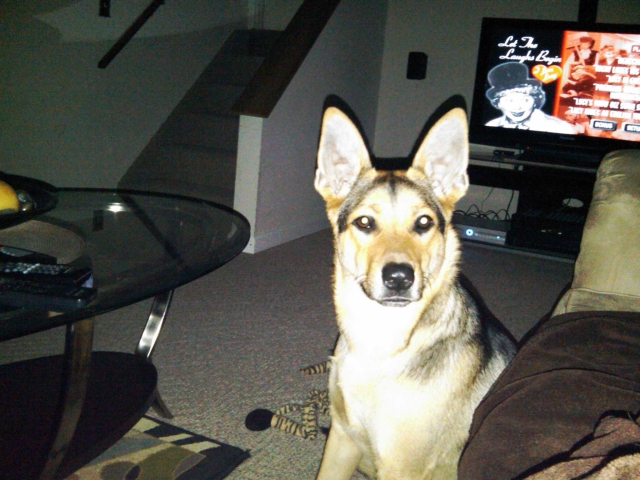 My German Shepherd Acts Scared
Question
Mannie
I have a male 1/2 German Shepherd 1/2 H
My German Shepherd Acts Scared
Question
Mannie
I have a male 1/2 German Shepherd 1/2 H
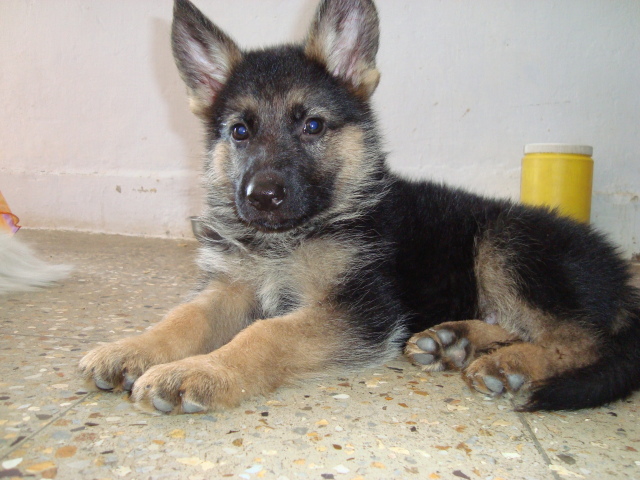 puppy weight
Question
Rocky
I recently purchase 2 mnths old GS puppy
puppy weight
Question
Rocky
I recently purchase 2 mnths old GS puppy
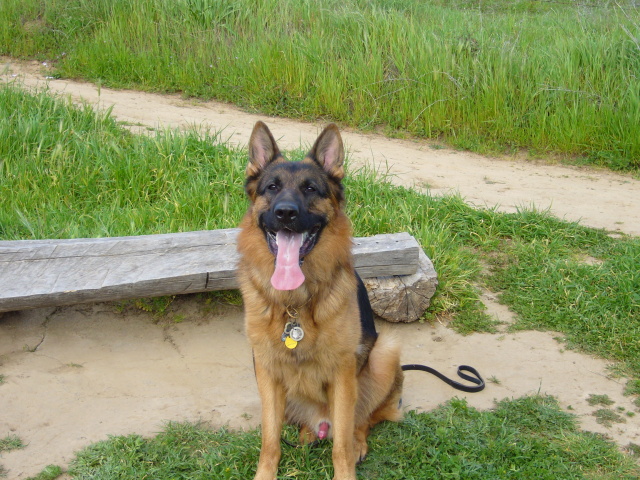 Aggression
Question
Ray
Hello, I need help...I lost my female GSD
Aggression
Question
Ray
Hello, I need help...I lost my female GSD
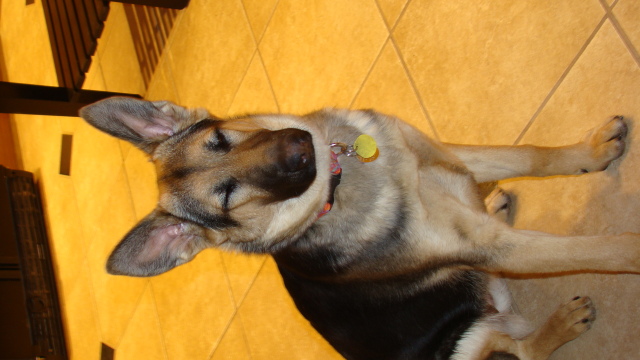 tymber
Question
tymber
ok my gsd is now 7 months old and i hav
tymber
Question
tymber
ok my gsd is now 7 months old and i hav